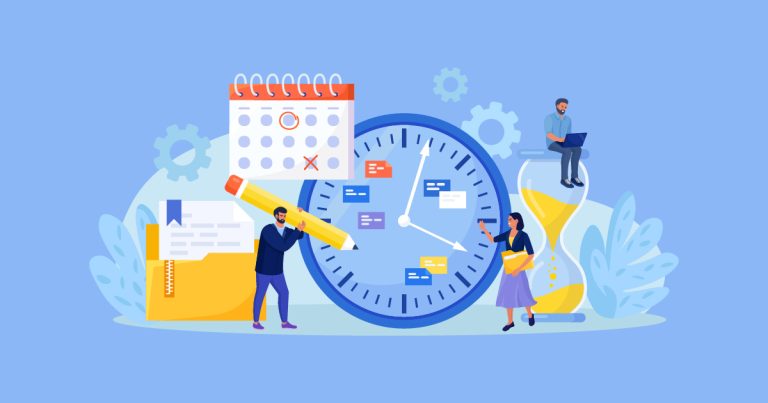
10 Essential Time Management Tips for Freelance Developers
As freelance developers, time management is critical for success. Balancing multiple projects, deadlines, and client communications can be challenging without effective time management strategies. In this article, we will explore ten valuable tips to help freelance developers optimize their time and enhance productivity.
1 – Set Clear Goals and Prioritize Tasks
Start by defining clear goals for each project and your overall freelance career. Break down these goals into actionable tasks and prioritize them based on deadlines and importance. This will help you focus on what matters most and avoid getting overwhelmed with too many tasks at once.
2 – Create a Daily Schedule
Establish a daily schedule that outlines specific time blocks for each task, including client work, personal projects, administrative tasks, and breaks. Stick to this schedule consistently to maintain a sense of structure and ensure you allocate enough time for each activity.
3 – Utilize Time Tracking Tools
Time tracking tools can be invaluable for freelance developers. They help you monitor how much time you spend on each project, identify inefficiencies, and accurately bill clients for your work. Consider using apps or software that integrate seamlessly with your workflow.
4 – Minimize Distractions
Freelancers often work from home or remote locations, making distractions a common challenge. Minimize distractions by creating a dedicated workspace, turning off notifications during focused work hours, and practicing discipline in managing personal tasks until breaks or after work hours.
5 – Adopt the Pomodoro Technique
The Pomodoro Technique is a time management method that involves working in focused intervals (typically 25 minutes) followed by short breaks. This approach can boost productivity by enhancing focus during work sessions and preventing burnout.
6 – Learn to Say No
While it’s essential to take on new projects to grow your freelance career, it’s equally crucial to know when to say no. Overcommitting can lead to subpar work quality and missed deadlines. Be realistic about your capacity and communicate transparently with clients about your availability.
7 – Delegate Non-Essential Tasks
As a freelance developer, you may find yourself juggling various responsibilities beyond coding, such as marketing, invoicing, and administrative tasks. Consider delegating non-essential tasks, such as accounting or social media management, to free up time for your core development work.
8 – Batch Similar Tasks
Batching similar tasks together can improve your efficiency and reduce cognitive switching. For instance, schedule dedicated blocks for client meetings, bug fixing, or testing, allowing you to focus on one type of activity at a time.
9 – Take Regular Breaks
Avoid the temptation to work continuously without breaks. Regular breaks are crucial for maintaining focus and preventing burnout. Step away from your workspace, take a short walk, or engage in a quick stretch to refresh your mind and body.
10 – Review and Adjust
Regularly review your time management strategies to assess their effectiveness. Identify areas for improvement and make adjustments accordingly. As you gain insights into your productivity patterns, you can fine-tune your approach for better results.
Effective time management is the backbone of a successful freelance developer’s career. By setting clear goals, creating a structured schedule, and leveraging time tracking tools, freelancers can optimize their productivity. Minimizing distractions, adopting productivity techniques like the Pomodoro Technique, and learning to say no when necessary are also essential practices. Delegating non-essential tasks, batching similar activities, and taking regular breaks contribute to maintaining focus and preventing burnout. Regularly reviewing and adjusting time management strategies will help you continually refine your approach, ultimately leading to increased efficiency and success in your freelance journey.